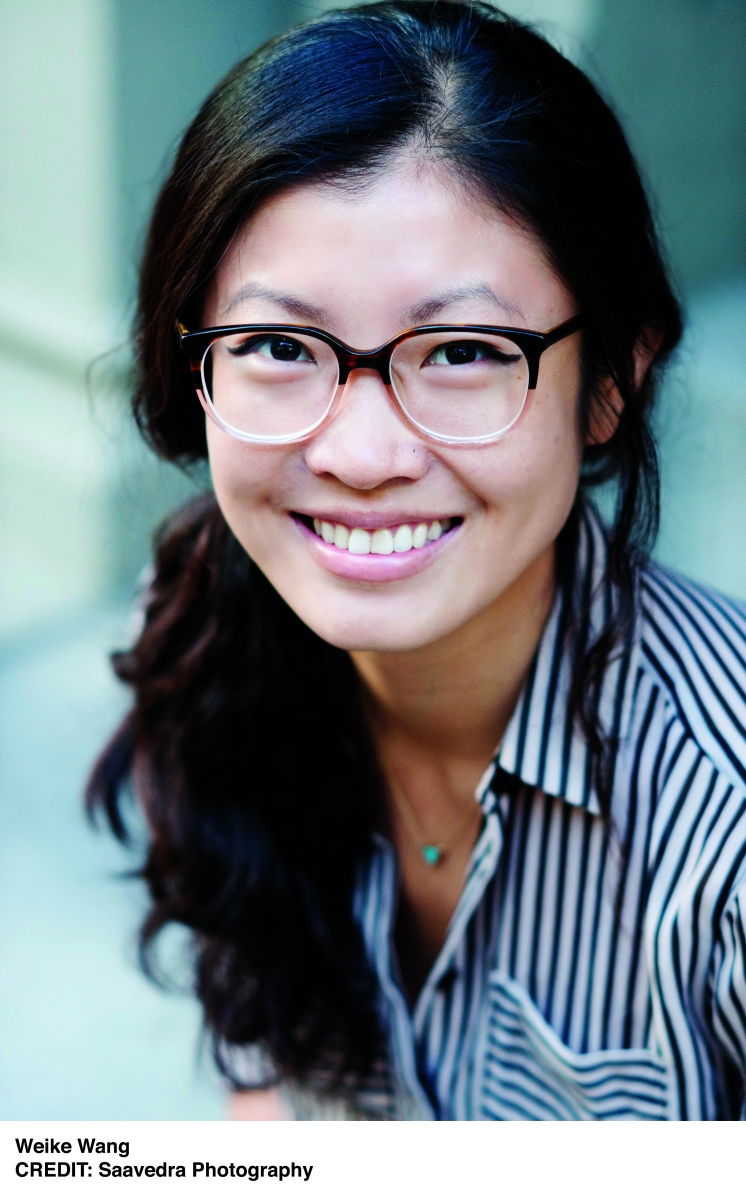
Weike Wang, 2018 PEN/Hemingway Award Winner for Chemistry
Congratulations on the success of Chemistry, and for winning the PEN/Hemingway Award last weekend. We are privileged that you are taking time out of your day to answer these questions.
Q: What is your first published story, and what is the story about?
A: In college, I had written something very short that was published in Smokelong Quarterly. The story was about a couple going to get coffee in the winter.
Q: Was there anyone at Boston University who pushed you to write your debut . . . Chemistry?
A: I don’t think anyone pushed me per-say. Ha Jin was one of my thesis advisors and I had taken a novella class with him, along with a literature class. In both classes, I was reminded of the very true fact that story collections do not do as well as they used to, and that writing novels is important. The person pushing me harder than anyone else was myself. I was finishing a doctorate in a practical field, and at the same time, an MFA in a less practical field. So, I needed to get the most out of my education. I could not waste time but I also could not be impatient. My teachers at BU were brilliant and I owe them each a vacation for the time they took out to nurture me.
Q: Chemistry is about an unnamed Chinese-American woman, a doctoral candidate, whose American boyfriend proposes marriage. Can you tell us about the autobiographical elements in the novel?
A: Here are some of the correlating elements. I am a Chinese American woman, I completed a doctorate, I am married to an American man. However, the events of the novel never took place. I never in a million would have gone into a chemistry PhD. My American man and I never broke up or had long periods of separation. I do have a dog and I will admit the dog traits in the story are similar to those of my dog. However, nothing in the novel is autobiographical. The parents are stitched together from many different sets of parents. The trajectory is imagined. Though when I write, I naturally follow themes and issues that are close to me. And to create characters, I cut off pieces of myself to give them. But the real people and events are only springboards. The final piece of work remains fiction. I have to believe that this is true for other writers. Many American writers write characters who are both American and writers; yet these characters are not necessarily the writers themselves.
Q: Do you remember when you decided you wanted to become a full-time writer?
A: No.
I went through the premed circuit (applied, interviewed, decided not to go) and met a sea of people who would say I knew since I was four that I was going to be a doctor. Impossible, I now think. Perhaps at four the only profession you were aware of was doctor but it is impossible to know what you want to do then, much less dedicate yourself to for the next sixty years. I feel similarly about becoming a writer. You don’t really know, when or where. For writing, especially, you have to fall into it. Had this debut not been published (though that was the dream!), I would have probably gone back to the more practical field and continued to write on the side.
Q: Do you have a favorite Ernest Hemingway book or story?
A: I use “Hills Like White Elephants” in my fiction classes to teach dialogue, pacing, and the need for subtext but not necessarily the need for back-story.
I like The Old Man and The Sea. Its literary merit I do not need to further state but what I like about the book is that it is a fun read, a great adventure. I admire that in spite of craft, Hemingway has never compromised story.
Q: Do you remember where you were when you received the news about winning the PEN/Hemingway Award?
A: I was eating breakfast and replying to work emails. Then when the notification came I was stunned for about ten minutes. The next thing I did was to tell my family and to email Ha Jin.
Q: How can your readers keep in touch with you?
A: I have a Facebook page. My clever husband made it for me. The page is called Weike Wang Writes.